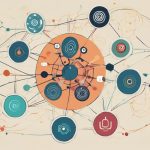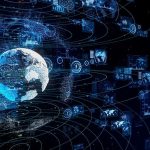Introduction
Artificial intelligence is no longer just a tool—it’s a cultural force transforming how humans interact, create, and lead. From Hollywood studios to political offices, AI is influencing decisions, storytelling, and even global power structures.
This shift has blurred the boundaries between entertainment, technology, and geopolitics. As the world becomes increasingly digital, AI’s influence is shaping economies, international relations, and the very definition of creativity and authority.
The Integration of AI in Global Entertainment
AI has entered the entertainment industry with extraordinary momentum. Studios now use algorithms to predict audience reactions, generate movie scripts, and design visual effects with unparalleled precision. This technological evolution is revolutionizing creativity and efficiency.
However, critics argue that excessive reliance on AI could limit human imagination. As automation replaces certain artistic processes, questions arise about authenticity and originality in a world where algorithms co-author films and music.
Celebrities and the AI Revolution
Celebrities have quickly embraced AI to expand their influence and connect with audiences. Digital avatars, personalized fan interactions, and AI-generated marketing campaigns allow stars to reach millions without physical presence.
This new dynamic gives celebrities unprecedented control over their personal brand. Yet it also raises ethical concerns about identity theft, authenticity, and how much of what audiences see online is truly real.
AI in Political Communication
Artificial intelligence is transforming the way politicians engage with the public. Campaigns now rely on AI-driven data analysis to understand voter behavior, craft targeted messages, and shape policy narratives. This precision communication has redefined modern democracy.
At the same time, AI poses risks to political integrity. Deepfakes and misinformation campaigns threaten to undermine trust in institutions, forcing governments to develop regulations that balance innovation with accountability.
The Global Power Shift Through Technology
AI has become a strategic asset for global dominance. Countries investing heavily in AI—such as China, the United States, and the United Kingdom—are securing not only economic advantages but also geopolitical leverage.
Control over artificial intelligence technologies determines influence over global trade, defense, and digital communication. The world’s next superpowers will likely be those that master both the innovation and ethics of AI.
Entertainment Diplomacy and Global Culture
Entertainment has evolved into a powerful form of diplomacy. Through films, music, and digital platforms, nations now use culture as a means of soft power, spreading their values and ideologies worldwide.
AI enhances this cultural influence by analyzing global trends and tailoring content for diverse audiences. As entertainment becomes a geopolitical tool, nations are learning to merge creativity with strategic communication.
Ethical Challenges in AI and Influence
The growing reliance on AI introduces complex ethical challenges. Algorithms can reinforce biases, manipulate emotions, and influence behavior without users’ awareness. This power, when used irresponsibly, threatens both democracy and individuality.
Tech companies, governments, and creators must establish transparent systems that prioritize fairness and truth. The future of AI-driven influence depends on the ability to balance progress with human dignity.
FAQs
How is AI changing entertainment?
AI streamlines film production, personalizes content, and predicts audience preferences, transforming how media is created and consumed.
Why are celebrities adopting AI tools?
AI allows celebrities to enhance branding, manage interactions, and connect globally through innovative digital experiences.
How does AI affect global politics?
AI shapes campaigns, diplomacy, and governance while posing challenges related to misinformation and surveillance.
What role does entertainment play in diplomacy?
Entertainment serves as cultural diplomacy, promoting national identity and values through globally shared media.
What are the ethical risks of AI influence?
Unchecked AI can spread bias, fake content, and emotional manipulation, requiring strict regulation and accountability.
Conclusion
Artificial intelligence has united technology, entertainment, and global politics in a complex web of influence. The forces that once operated separately now coexist within a digital framework that defines power and culture.
As the world navigates this transformation, responsibility and ethics must guide innovation. Humanity stands at a crossroads where the future of creativity and governance depends on how wisely it wields the immense potential of AI.



